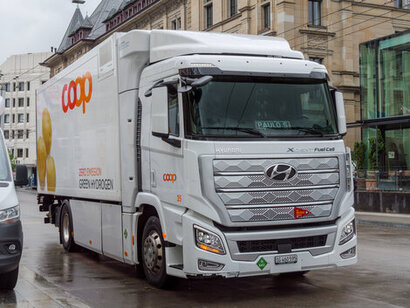
Low-carbon coastal shipping running on green methanol or green ammonia and Sustainable Aviation Fuel (SAF) are the key drivers identified by the IH2A report, over the 2025-2030 period. The report makes the case for India to build low-carbon efuels hubs and low-carbon heavy duty transport corridors along India’s East and West coasts.
The report is based on a scenario and assumption of a low-carbon coastal shipping fleet of 22 green methanol powered and 22 green ammonia powered vessels; a low-carbon heavy duty trucking fleet of 30 green methanol fuelled trucks, 30 green ammonia trucks and 30 green hydrogen trucks, with 1-3 percent SAF blending on 122 flights (domestic and international) by 2030.
The key takeaways of the report are as follows:
Sustainable Aviation Fuel (SAF) blending, as a drop in fuel, is easiest for decarbonising aviation in the short term as it does not require new aircraft CAPEX and creation of refuelling infrastructure.
Coastal shipping fleets can be a key volume driver for low-carbon e-fuels offtake – coastal shipping can account for significant offtake of green methanol and green ammonia volumes for transport decarbonisation.
Fleet and refuelling infrastructure CAPEX for green methanol, green ammonia, and liquid/compressed gaseous hydrogen.
Incentivising fleet owners to include low-carbon e-fuel powered vehicles and creating low-carbon e-fuel refuelling infrastructure.
Low carbon and green efuels production and refuelling infrastructure should be clustered in green fuel hubs, in a number of select coastal locations, to reduce offtake risk, fuel coastal shipping and trucking fleets that operate along the coasts, minimising the cost of building efuel refuelling infrastructure in the short term.
Collaborative cross-border green fuels partnership with Singapore (for green methanol as maritime fuel) and the EU (for SAF on aviation fleets) are important for decarbonising heavy duty transport in India.
“Aviation and Coastal Shipping are two clear priorities for decarbonising transport with low-carbon eFuels” said Amrit Singh Deo, IH2A Secretariat lead. “Coastal Shipping can deliver the volumes while SAF as a drop-in fuel is the easiest to deploy in the short-term. Strategic Low-Carbon eFuel Partnerships with Singapore and Europe will help drive eFuel adoption. Transport fleet owners, in shipping and trucking, will require CAPEX support to introduce low-carbon vehicles in their heavy-duty transport fleets. Without demand-side incentives to transport fleet owners, adoption of eFuel powered vehicles will be slow. Low carbon eFuels have an important role to play in decarbonising heavy duty transport but close coordination between policy makers, e-fuel producers and fleet owners are required.”
For additional information:
India Hydrogen Alliance (IH2A)
Low-Carbon efuels & Heavy Duty Transport Decarbonisation Report 2025-2030

